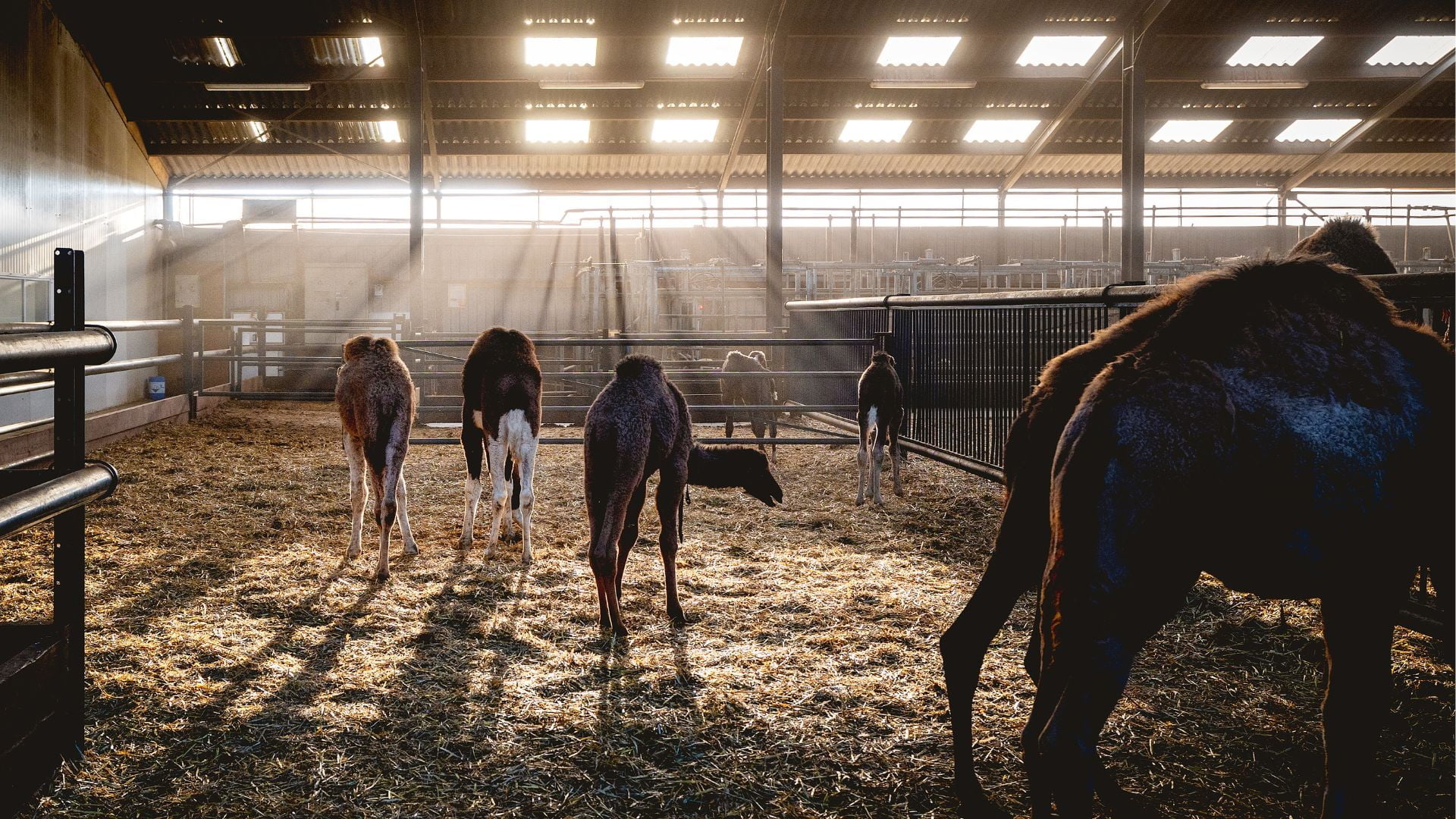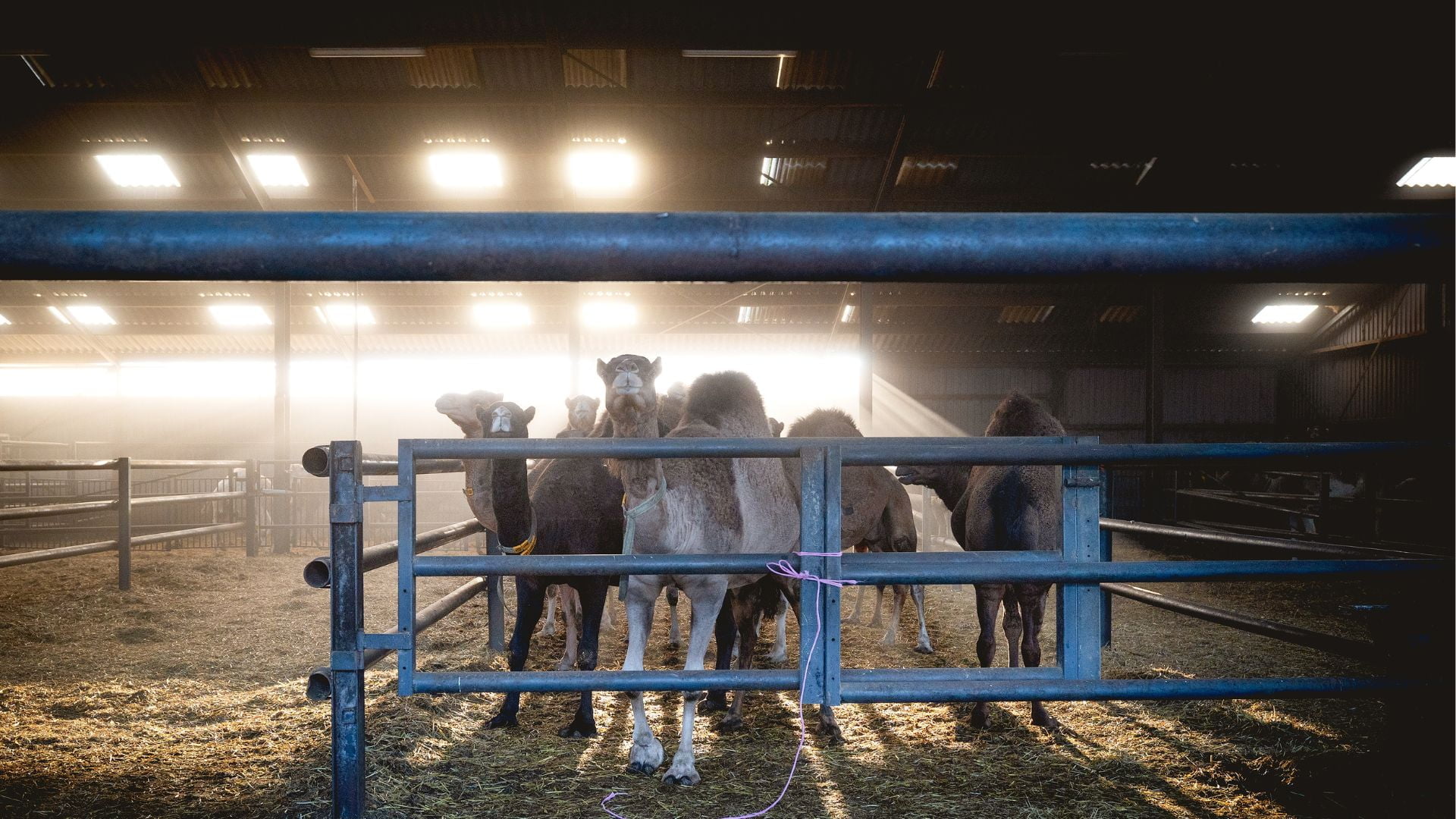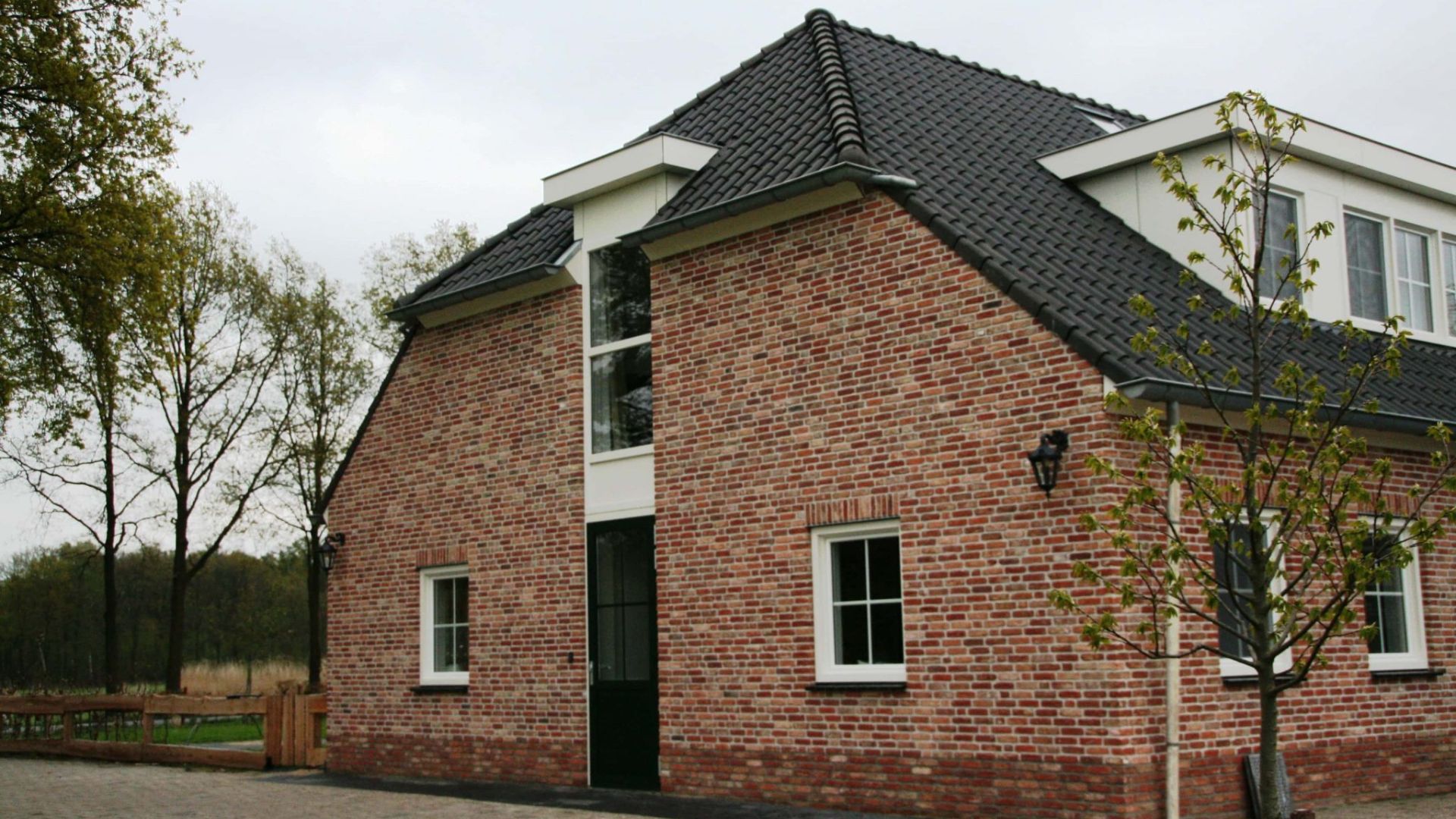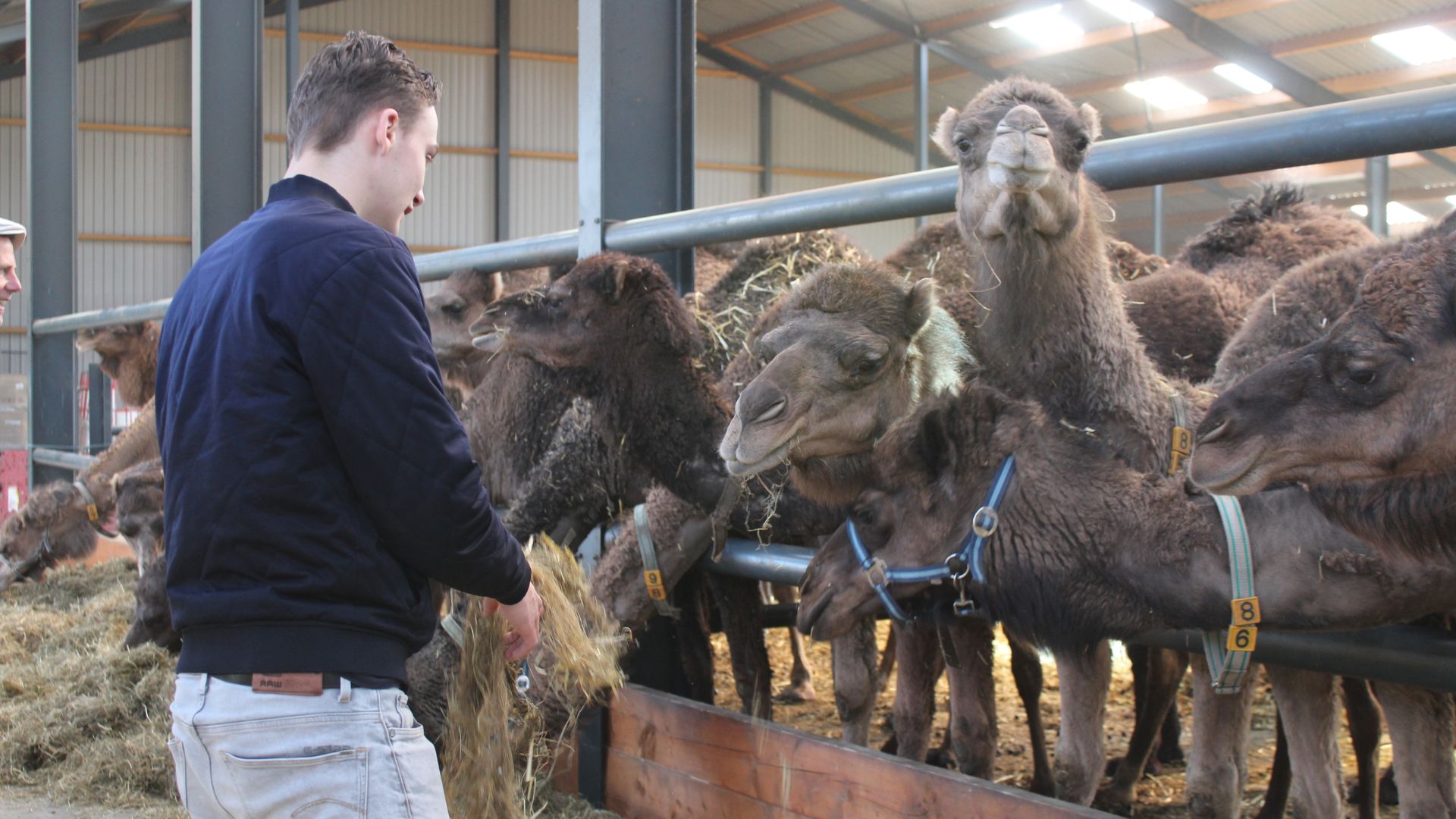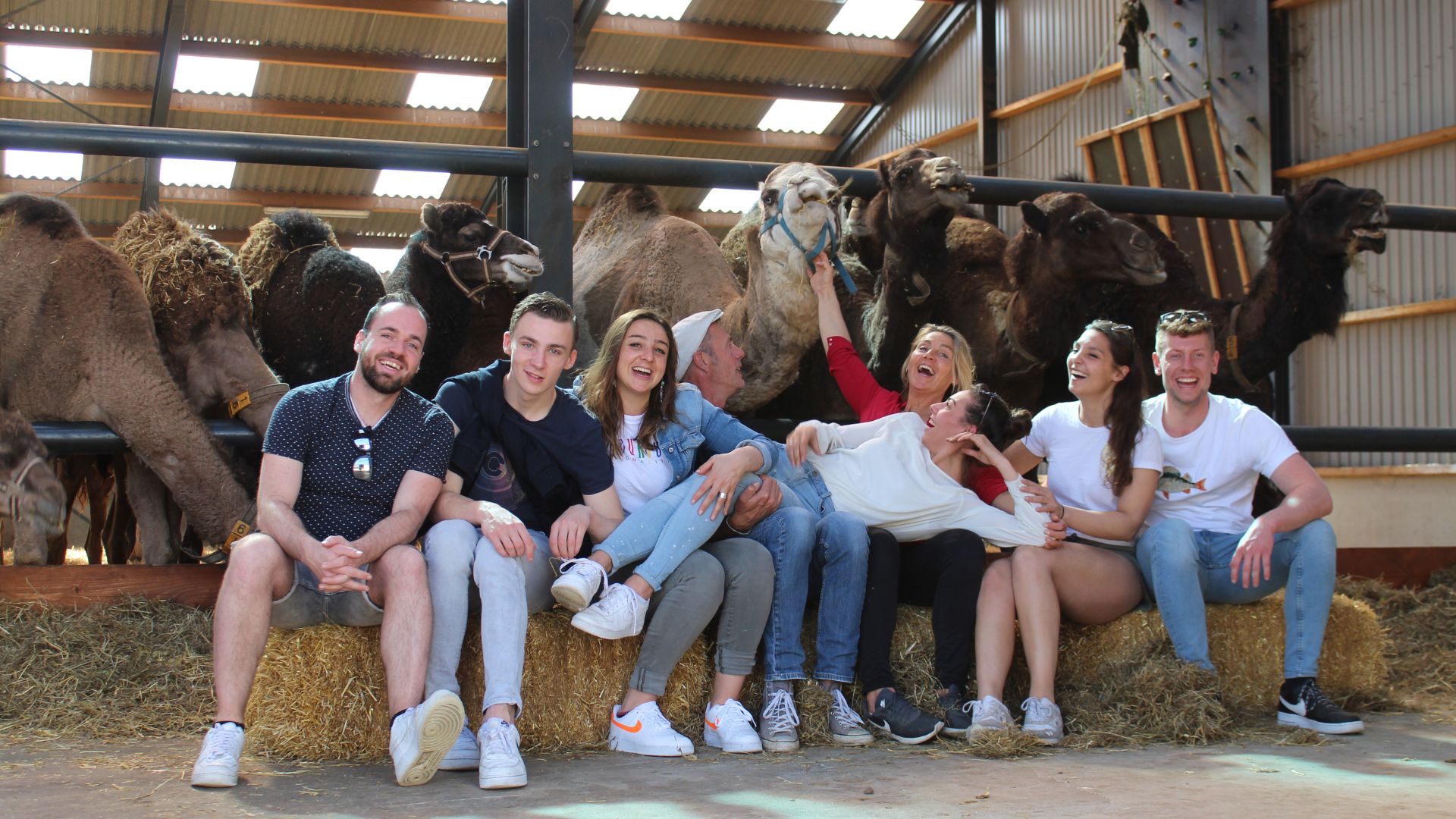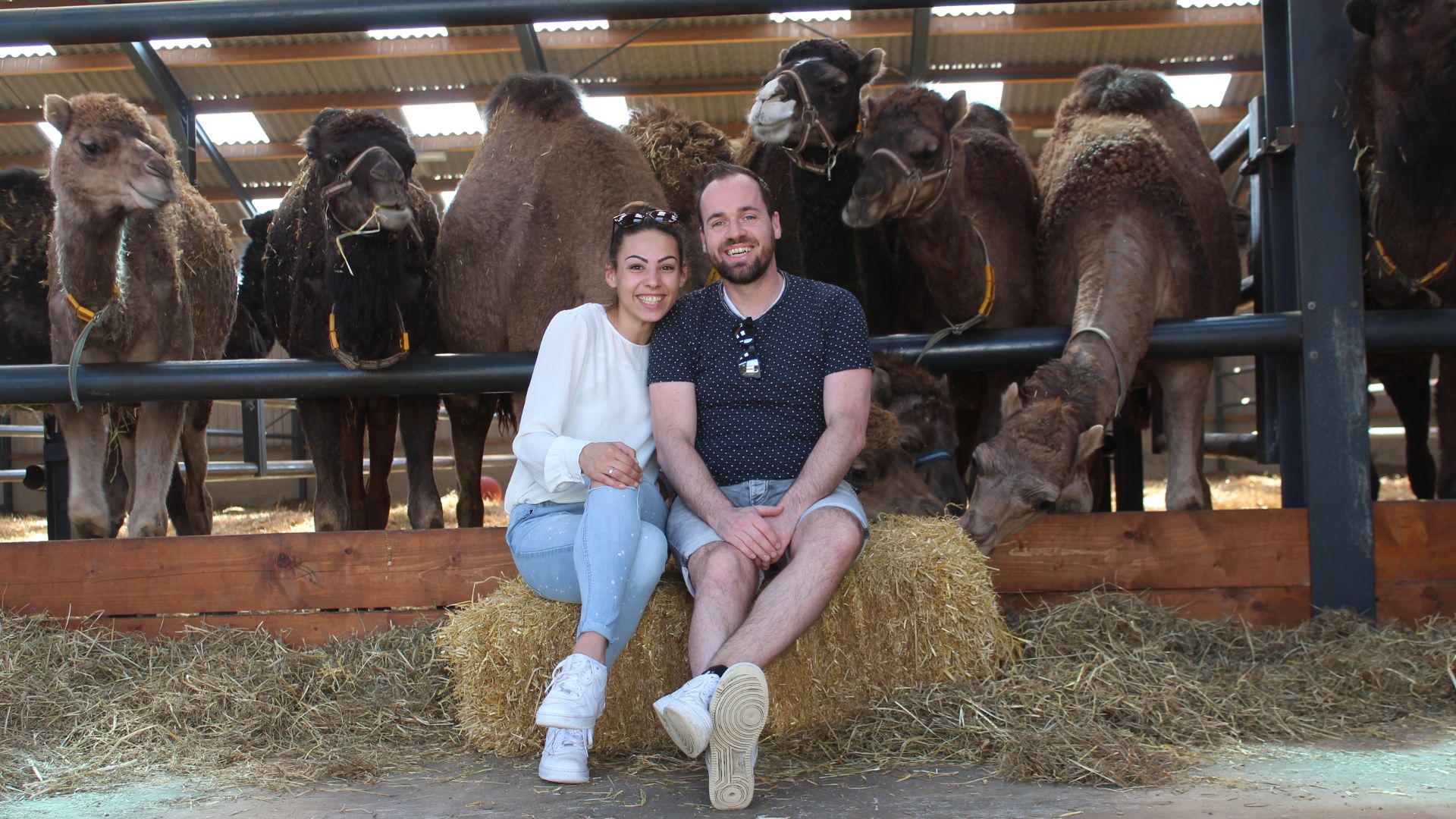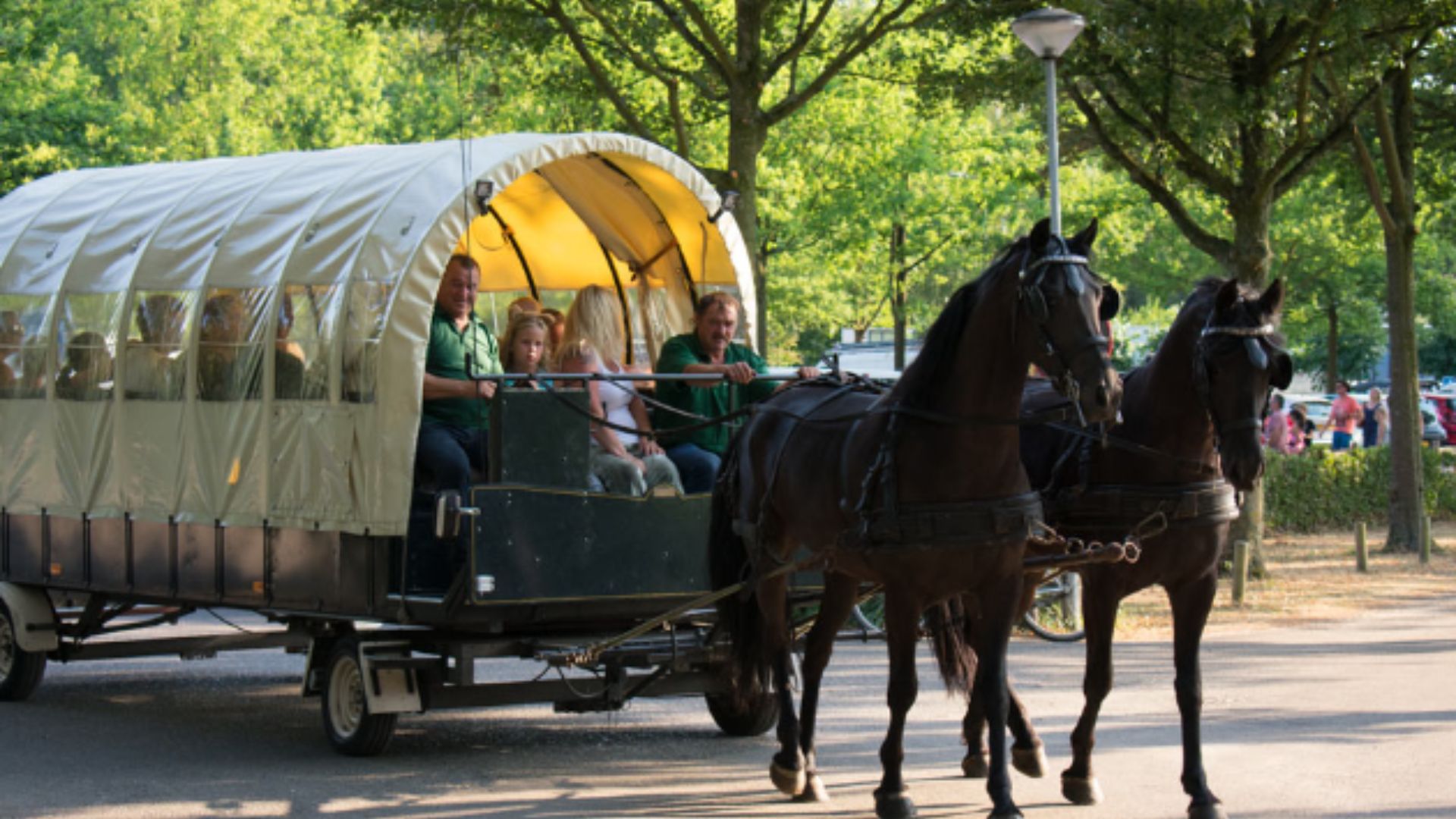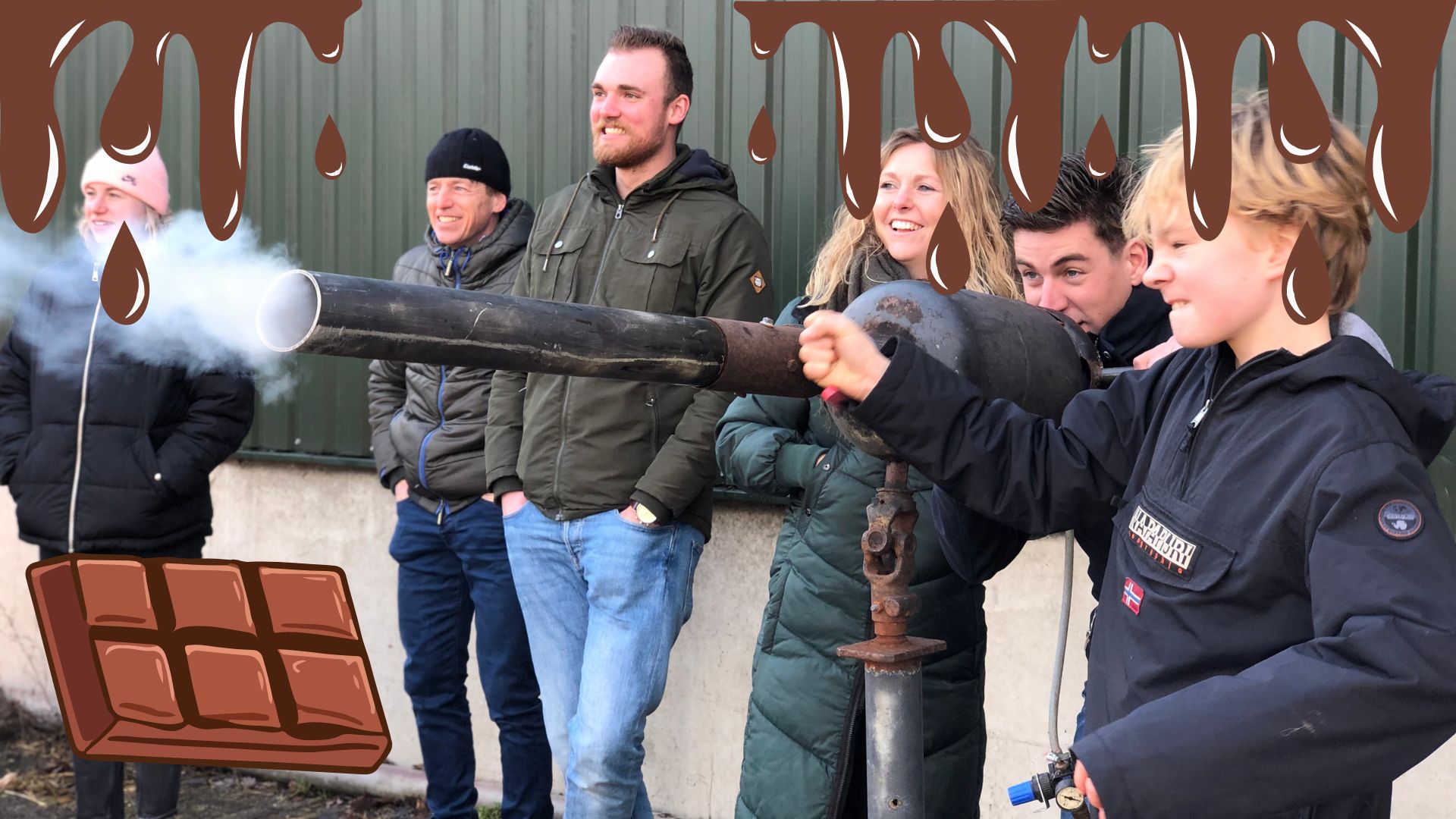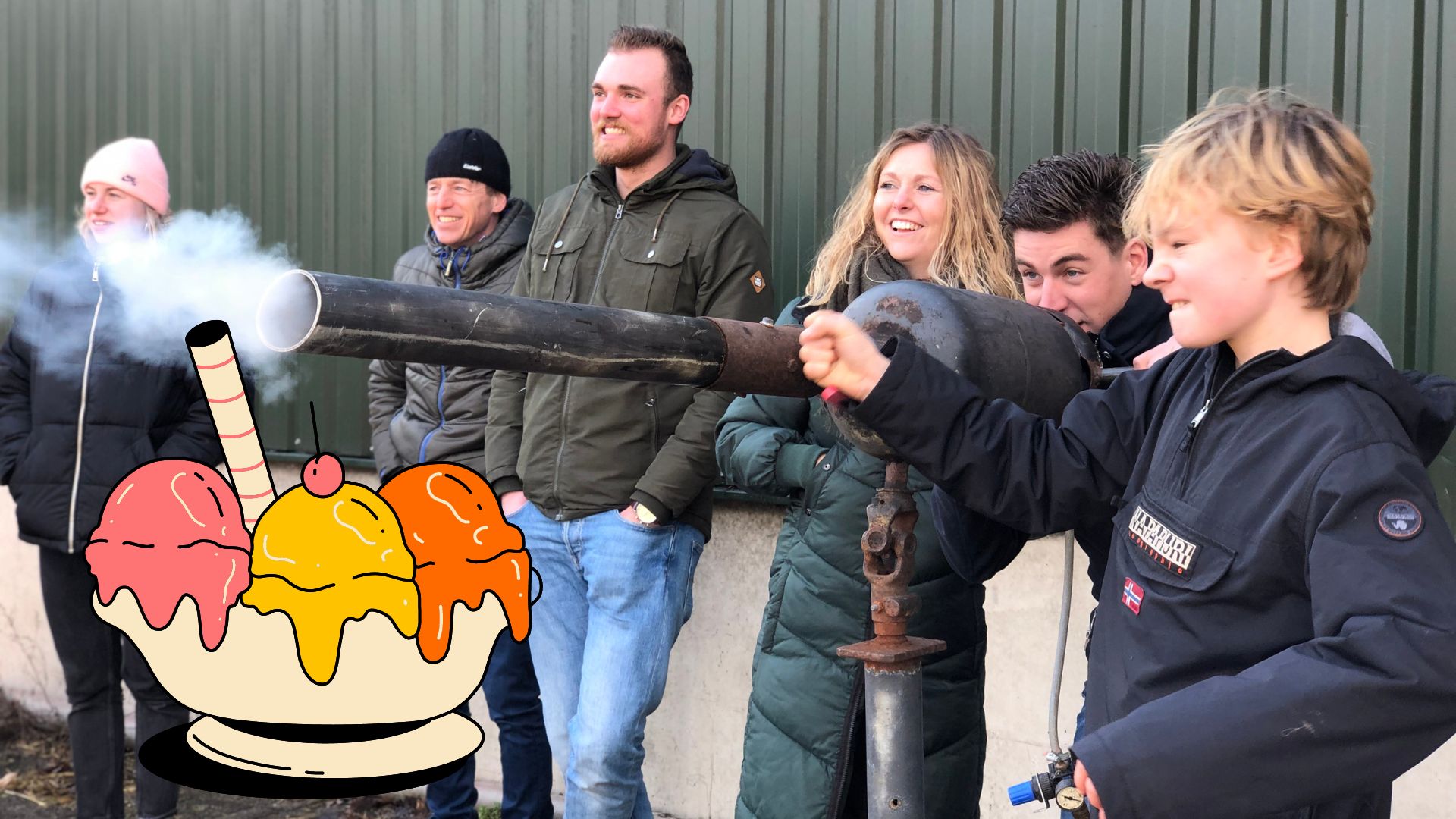History
We are the only ones in the Netherlands who milk camels. Our farm is located in the village of Berlicum in the province of Brabant, near ’s-Hertogenbosch. There, between 100 and 130 one-humped camels (dromedaries) roam across several barns.
How It All Started
Frank, a graduate of the Higher Agricultural College (HAS) in ’s-Hertogenbosch, turned his passion for farming into a thriving business. It all began with a vision—inspired by the Food and Agriculture Organization of the United Nations (FAO), which considers camel milk one of the healthiest types of animal milk. Research showed potential for the economically viable production of camel milk in the Netherlands. Frank decided to take on this challenge.
Our dairy farm quite literally began in the heart of the city: In 2006, the municipality of Den Bosch temporarily granted us the use of a plot of land—about ¾ of a hectare—at the corner of Rompertsebaan and Wethouder Schuurmanslaan. In August 2006, three camels from one of the Canary Islands arrived in Den Bosch. After a five-day boat trip, the animals were transported to the Netherlands in a trailer specially designed for camels.
At the end of 2006, the camels moved to their winter quarters in Cromvoirt. There, in the spring of 2007, the first calves were born. Since then, camel milk has been available in the Netherlands.
In September 2010, the Camel Dairy moved to Berlicum, to a larger location that offered more space for the camels. A large barn was built right away to give the animals ample room. By 2014, the farm housed over 80 camels. In April of that year, the business expanded with a restaurant in an oriental style where groups can enjoy lunch and dinner. In 2016, a group accommodation was opened. In 2018, a new barn was added, and today we have between 100 and 130 camels, including many calves.
We are the only professional camel dairy in Europe, and ours is the only milk that may legally be sold raw within the EU. Outside the Netherlands, our camel milk is also exported to countries such as the United Kingdom, Belgium, Germany, Austria, and Sweden.
The Goal
The initial goal of the camel milk project was to investigate whether it was possible to milk camels mechanically and to explore potential market opportunities. And it worked! The camels are now milked using a machine invented by Frank Smits, the owner of the dairy. This specially adapted cow milking machine allows for efficient camel milking.
The milk is sold in its natural, unprocessed form but is also used in the production of various other products. It is available at multiple locations in the Netherlands, throughout the EU, and even worldwide under the brand name Oasis Camel Milk.
Company Philosophy
Company Philosophy
Over the years, the camel dairy has grown into a place where camels, employees, customers, and guests all feel at home. Every day, we work to ensure good animal health and continually improve animal welfare—for example, by always keeping the calves close to their mothers.
Our employees are able to express their ambitions and enthusiasm not only through animal care, but also in tourism, milk processing, and the many other activities on the farm. Positive experiences with camel milk are shared through word-of-mouth, helping us build a loyal and growing customer base.
Guests enjoy not only a fun day (or even a week) out, but also gain insights into camels, farm life, and the countryside. At Camel Dairy Smits, we aim to create as much added value as possible for the people, animals, and community in and around the farm.
At the Camel Farm, the following points are key:


